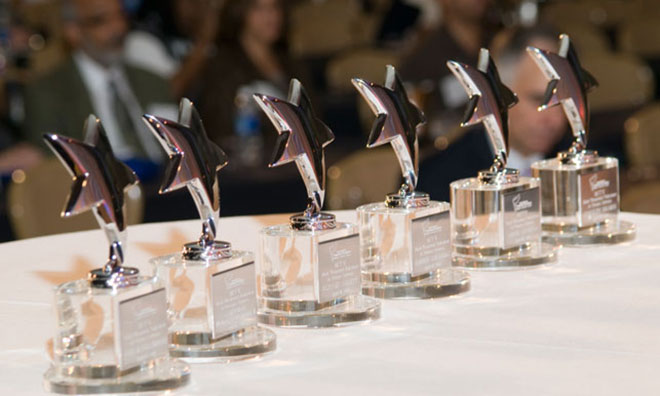
Cleveland Nonprofit Recognizes Unsung Volunteer Heroes
An awards program of the Center for Community Solutions honors volunteers and boosts morale in the community. The program’s longtime manager shares some secrets to success.
For nine citizens of the Greater Cleveland area who were recently honored with MTV Awards, the recognition had nothing to do with catchy music videos or trophies shaped like moon men. Rather, the Center for Community Solutions (CCS), a Cleveland-based nonprofit think tank, acknowledged these Most Treasured Volunteers last month for their work in the community.
The MTV Awards program, established in 1984, grew out of an educational event that had gone stale and gives CCS the opportunity to call attention to the community’s unsung heroes, who volunteer with organizations providing legal assistance, adoption support, aid to the homeless, and other services.
The organization decided that we needed to put the ‘human’ back in ‘human services.’
“Our Human Services Institute event is a one-day conference that covers health and social issues and has a lot of education and information sharing for people in the field,” said Roslyn Bucy Kaleal, office administrator at CCS. “Over time that became very academic, and the organization decided that we needed to put the ‘human’ back in ‘human services.’”
They did it by honoring their volunteers.
“You can never recognize and thank volunteers enough. A community’s success relies so heavily on these people who work behind the scenes when most people don’t even know what’s going on,” Kaleal said. “These people perform a critical function, and it’s just so important that not only they as individuals be recognized in some appropriate way, but also that the community understand what a critical function volunteers play in making the community run. If every volunteer quit today, cities would shut down, and people don’t know that.”
The process that CCS uses is simple, said Kaleal, who runs the program. The group accepts nominations and then convenes a panel of judges comprising CCS board members and others in the community. Each judge brings his or her five favorites, and the group discusses them.
“To a certain degree, it’s a subjective process because the judges are bringing into the room their own personal priorities, but we rotate new judges into the panel each year to keep things fresh,” said Kaleal. “But keeping the process simple makes it much less of a burden, and there’s joy in administering the program.”
And for the volunteers themselves, the program serves as a huge morale booster, she said. “A paycheck is one thing, but when you go beyond that and you’re giving your time for something that’s important to you, it’s nice to know that what you’re doing is important to somebody else as well.”
The program has other rewards for Kaleal: “This is the most fun thing I do all year. We’re an indirect service organization, so we don’t see clients or treat patients or anything like that—we do policy and research. This program allows us, and allows me personally, to have contact with the people out there who are really doing the work that we’re supporting, and I get a great deal of satisfaction from that.”
(Center for Community Solutions)






Comments